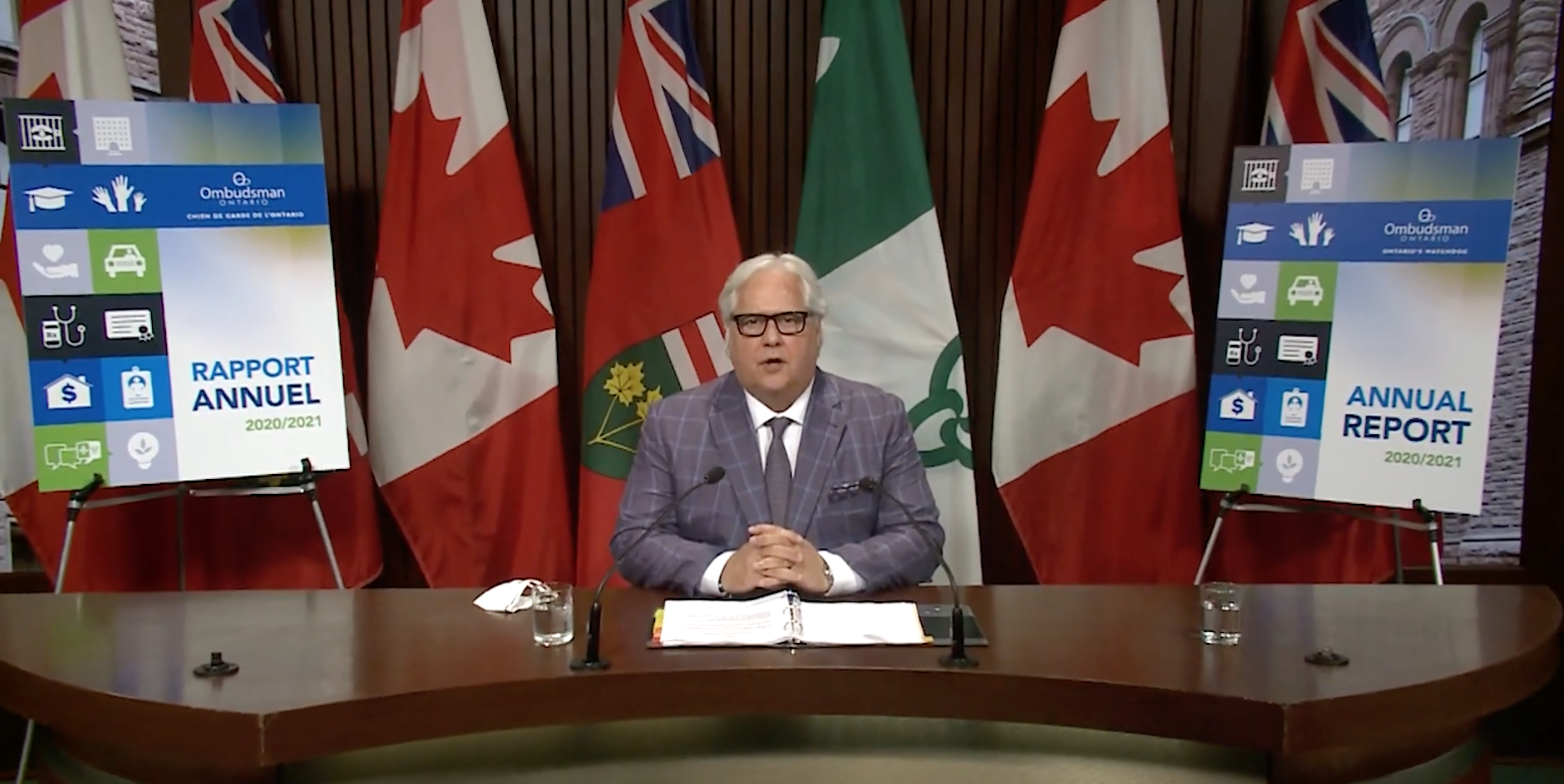WELLINGTON COUNTY – An annual report from the Office of the Ombudsman of Ontario covering 2021-22 shows the organization—billing itself as “Ontario’s watchdog”—received 43 cases concerning municipalities and organizations within Wellington County.
Through several email exchanges with each of the municipalities and organizations, the Advertiser has learned there’s more nuance to the numbers than meets the eye.
According to Ombudsman communications director Linda Williamson, “cases” refers to both complaints and inquiries.
And as far as the watchdog is concerned, there’s no discerning between the two to help the public better understand the numbers.
For example, Erin had seven “cases” received for 2020-21—the highest within the county.
But when Erin senior communications officer Lavina Dixit was contacted by the Advertiser about the complaints, she said the town hadn’t received any notifications from the Ombudsman.
That’s because most cases are resolved by the Ombudsman without ever having to involve the subject of the case.
“Quite often, we are able to resolve the person’s issue or question quickly and do not even need to contact the organization,” Williamson explained in an email.
And so it went with nearly every case the Ombudsman received involving Mapleton, Wellington North, Centre Wellington, Erin, Minto, the county, the Upper Grand District School Board, the Wellington Catholic District School Board, and Family and Children’s Services of Guelph and Wellington County.
In fact, the only municipality contacted by the Office of the Ombudsman was Minto. And even then, an inquiry doesn’t necessarily entail a formal investigation.
That was the case with the town, where CAO Derrick Thomson said he was notified of a drainage complaint last year and a staff complaint around a month ago.
Thomson declined to discuss the staff complaint when asked, saying “It’s a [human resources] issue, so we don’t disclose [human resources] information.”
“I haven’t received any follow-up from that office or been given anything from them suggesting that they were going to investigate further,” Thomson said.
The Ontario Ombudsman’s website states: “When our staff contact a public sector body to gather information, it does not mean we are investigating.”
Only when the Ombudsman digs into a matter, launching an official investigation, is the subject of a complaint or inquiry formally notified with written notice, although Williamson said formal investigations are rare.
“Occasionally an issue cannot be resolved and the Ombudsman determines that it’s necessary to use his formal investigative powers,” Williamson stated.
Formal investigations are done privately, and when completed, “the Ombudsman shares his findings and recommendations with the organization in question as a matter of fairness, and issues a public report,” Williamson said.
Even Family and Children’s Services of Guelph and Wellington County, which the Ombudsman received 15 cases about—the highest of any organization in the county—received only a single request for information in 2020, according to executive director Sheila Markle.
The Advertiser inquired through email about the 43 cases received but Williamson declined to provide any detail stating, in part, “Ombudsmen ensure confidentiality of complainants is protected so that people can feel free to complain about public sector bodies without fear.”
She added, “Ontarians know that when they bring us information or issues, we will deal with them confidentially and not expose them to reprisal or violations of privacy.”
When the Advertiser pointed out the office does report publicly on “anonymized individual cases” resolved without formal investigation, Williamson still declined to comment on the nature of the 43 cases citing “strict confidentiality protections.”
“As well, in areas such as small municipalities where there are only a small number of complaints and inquiries, there is a greater risk that the release of information could identify a complainant,” she added.
“For all of these reasons, it is not our practice to provide a detailed breakdown of the substance of individual cases in specific municipalities or regions.”
Cases received by the Ontario Ombudsman about municipalities include:
- Erin, 7;
- Wellington County, 5;
- Minto, 4;
- Centre Wellington, 3;
- Mapleton, 1; and
- Wellington North, 1.
Cases received by the Ontario Ombudsman about organizations within the county include:
- Family and Children’s Services of Guelph and Wellington County, 15;
- Upper Grand District School Board, 6; and
- Wellington Catholic District School Board, 1.
No cases were received by the Ombudsman concerning Puslinch or Guelph/Eramosa.




